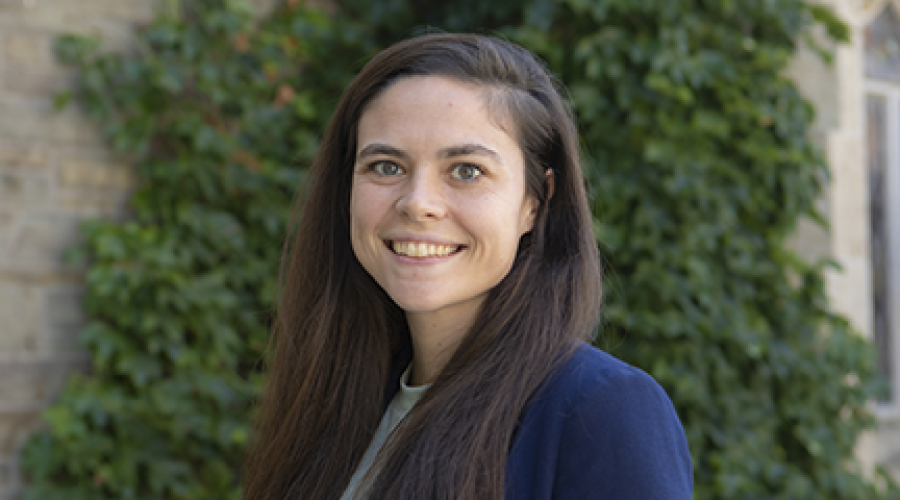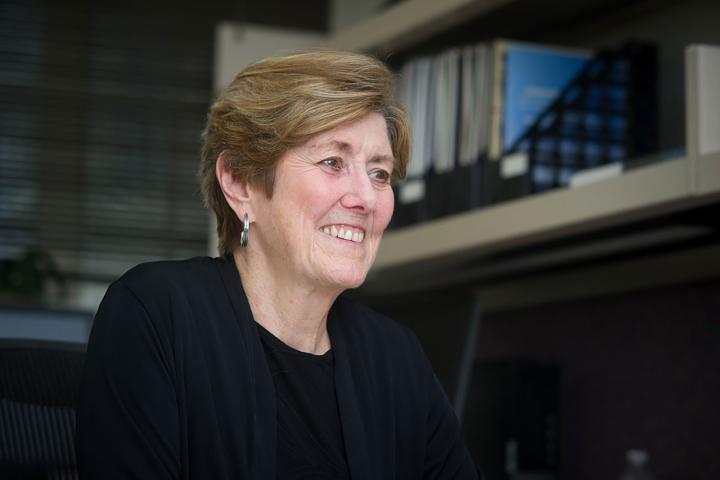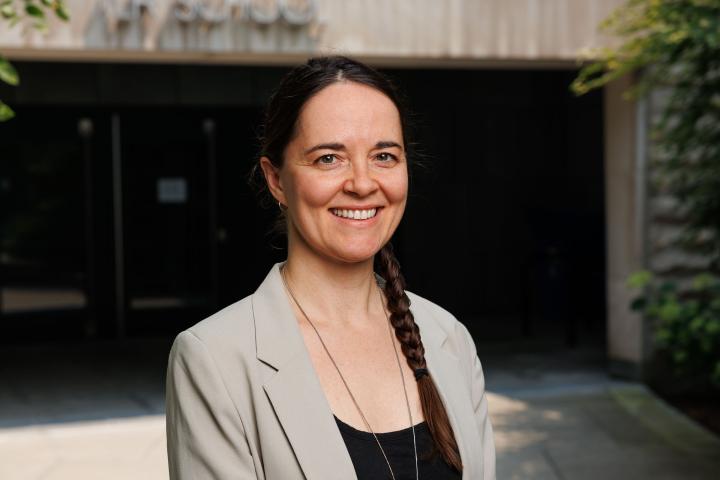
Q&A with Caitlin Ray
Caitlin Ray joined the Department of Human Resource Studies this academic year. She recently defended her dissertation, “Dissecting human capital resources: Unpacking the content, structure, and activation of human capital resources within firms,” earning her doctorate in business administration from the University of South Carolina. Ray obtained an MBA from Fayetteville State University after earning a bachelor’s degree in music from the University of New Hampshire.
What is your research about?
My research focuses on understanding how, when and why employees collectively bring value to their organizations. My research often centers on the dynamic properties that alter group composition, such as employee mobility, and the relational properties that influence the value that forms between individuals within groups, such as social capital and fit. The research questions I ask often necessitate a multilevel approach so I am also interested in methodological issues related to the use of multilevel data.
How did you become interested in your field?
In my previous work as a violinist, I had the opportunity to work in a wide variety of high and low performing groups. Over time I became curious why the individual talents of the musicians I worked with did not always correlate with the best performing groups. I noticed that in higher performing groups, something intangible would often arise between the musicians that improved the quality of the performance – but, it was difficult to understand, explain and quantify. When I transitioned to a corporate position, I continued to see this phenomenon play out when I worked closely with sales and marketing teams. It was in this setting I began to see that the positive synergies that did (or did not) arise between employees could significantly impact the financial success of an organization. When I started my doctoral studies, I took a seminar on human capital resources, which is where I was exposed to a topic area that allowed me to study this phenomenon more deeply.
What impact do you hope your research will have?
My research often touches upon the "human" part of human resources so my ultimate goal is to make a difference in the lives of the employees I research. To me, this means providing practical and relevant insights to organizations and managers to help them make better decisions regarding how to effectively combine, manage and retain employees in ways that are mutually beneficial. This also includes passing on insights from my research to future leaders, the students at the ILR School, through my teaching.
What attracted you to the ILR School?
The ILR School is special because the scholars are world-leading experts in their respective areas yet are incredibly accessible, supportive, and passionate – it is hard to imagine a better place to grow as a scholar.
What are you most excited for about your time at ILR?
I am most excited to integrate into the ILR community. Connecting with new colleagues, engaging with HR professionals, and building relationships with students are all really exciting opportunities to me.
Favorite piece of advice from a mentor or inspiring figure in your life?
Move toward the mess. Some of the most pressing questions facing the field of HR are extremely complicated. Instead of focusing on the challenges associated with answering these types of questions, I have always been encouraged to find creative ways to address them. This has pushed me not to shy away from difficult problems and to pursue the questions I believe are most important as opposed to easiest.


